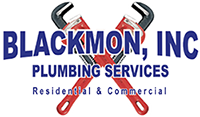Prepare the house for repiping: This includes shutting off the water, removing any existing plumbing fixtures, and disconnecting any plumbing pipes that need to be replaced
House Repipe
House Repipe
It can be daunting to consider repiping your entire home. There are a lot of details and decisions that need to be made, from cost considerations and materials used to any necessary demolition or repairs before the project can begin. But with careful planning and proper execution, a complete repipe process done by professionals doesn’t have to be overwhelming.
In this post, we will discuss everything you need to know about house repiping, from start to finish: determining if it’s necessary for your home, an overview of the different types of pipes available today as well as their associated advantages/disadvantages, and finally tips on how best approach getting it done properly so you can feel confident in work being done in your home.
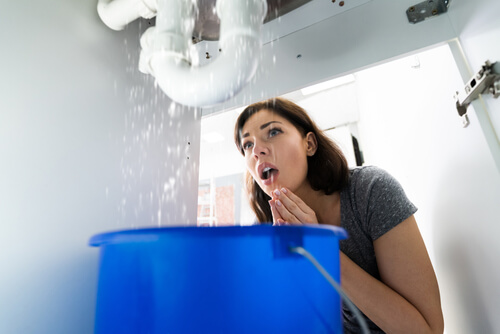
Do you have a plumbing emergency?
Blackmon Inc. is here to help. We are the top plumbing company in the area, and we offer 24/7 emergency services. We understand plumbing emergencies can happen at any time, so we’re always available to help.
We know that when something goes wrong with your plumbing, it can be a real hassle. That’s why we work hard to get the job done as quickly as possible so you can return to your life. We’re committed to providing quality service and ensuring our customers are happy.
Whether you need an entire building repiped or just a single pipe replaced, professional repiping services can provide the quality assurance you need. With help from experienced professionals, your building will be back up and running in no time!
Contact us today for all of your plumbing needs!
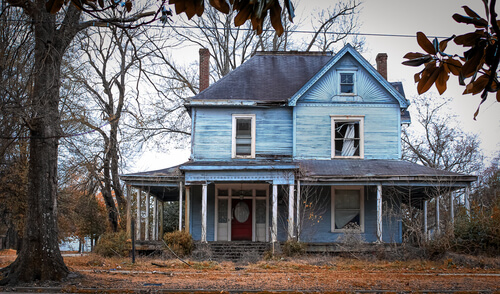
A Brief History of Repiping in Houston
The history of repiping in Houston dates back to the mid-20th century. Initially, buildings were constructed with different steel water pipes, a cost-effective material at the time. Reasonably long-lasting, these pipes nonetheless are susceptible to corrosion and rusty pipes over time due to their age and the quality of Houston’s tap water. As a result, many buildings have needed repiping services over the years to meet current safety and quality standards.
In response, various companies across Houston have begun offering professional repipe services. These companies use modern materials, which are more reliable and long-lasting than galvanized pipes steel. Repiping plumbing services may also include the installation of shut-off valves to prevent water damage, as well as a thorough inspection to ensure that all pipes are in working condition.
Today, repiping is more common than ever due to the age and quality of old buildings’ plumbing systems. Many homeowners and business owners have taken advantage of repiping services to ensure their buildings’ plumbing systems are reliable and up to current health and safety standards.
What are the different types of steel pipes used in home repiping?
When the pipes in your home need to be replaced, the plumber may recommend one of seven different types of steel pipes. Each type of steel pipe has its advantages, so it is important to understand which type is best for your repiping project.
Here is a breakdown of the common types of steel pipe used for home repiping:
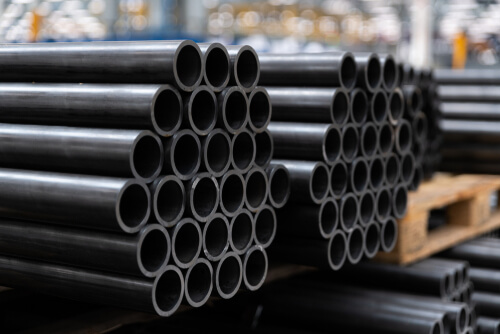
Black Steel Pipes
House repiping with black steel pipes is a great way to protect your plumbing system from leaks and other issues. Black steel pipes are strong and durable, making them an ideal choice for repiping applications. They are also relatively easy to install and maintain. Black steel pipes can be used in hot and cold water systems, providing a reliable solution for your repiping needs.
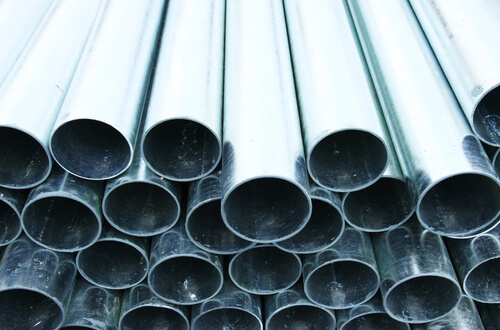
Galvanized Steel Pipes
Galvanized steel or lead pipes are coated with a layer of zinc, making them resistant to corrosion and rust. This type of steel pipe is great for house repiping because it can prevent any problems related to water leakage or corrosion in the future. In addition, galvanized pipe replacement is long-lasting and requires minimal maintenance.

Copper Pipes
Copper pipes are often the best choice for repiping house projects. Copper pipe is strong, durable, and resistant to corrosion and rust. Copper pipes are also easy to install, making them a great option for home plumbing repairs. Additionally, copper pipes are better at insulating against temperature changes, which can help save energy and money.
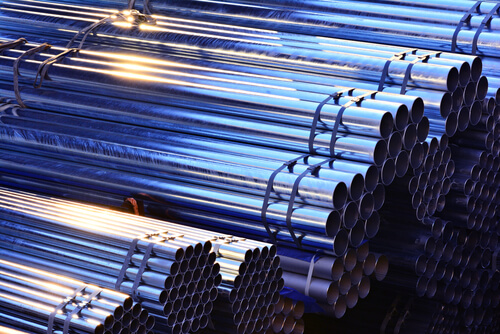
Stainless Steel Pipes
Stainless steel pipes are becoming increasingly popular for house repiping projects. These pipes are strong and durable, making them resistant to corrosion and rust. They also require minimal maintenance, so they are a great choice if you want a plumbing system that will last for years.
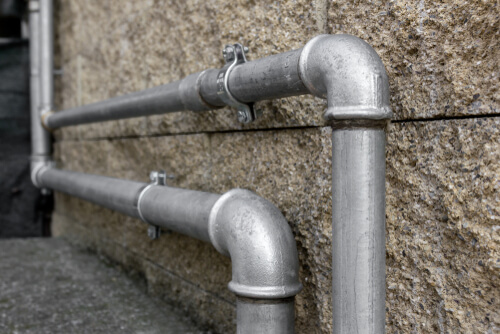
Cast Iron Pipes
Cast iron pipes are a great choice for repiping due to their strength and durability. These pipes can withstand high-pressure levels, making them ideal for homes with large water supply lines. They also require minimal maintenance and are resistant to corrosion and rust.
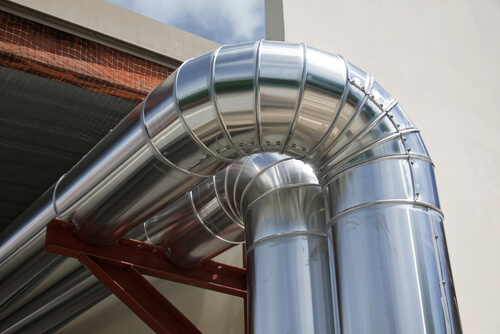
Aluminum Pipes
Aluminum pipes are becoming an increasingly popular choice for house repiping due to their lightweight and easy installation process. Aluminum is also resistant to corrosion, making it a great option for homes that require frequent plumbing repairs. Additionally, aluminum pipes are fire-resistant and can withstand extreme temperatures.
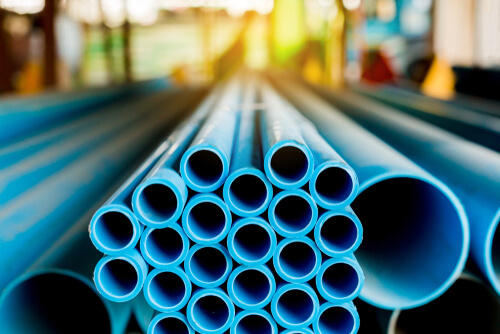
PVC Pipes
PVC pipes are a great option for house repiping due to their affordability and easy installation. PVC is also very resistant to corrosion, making it an ideal choice in areas with hard water or salty air. Additionally, this type of pipe does not require additional maintenance or treatment, making it a cost-effective solution for your home’s repiping needs.
Picking the right type of steel pipe for your house repiping project is important to ensure that your plumbing system runs smoothly and efficiently. Research each type of steel pipe before deciding which one is best for your home. A professional plumber can help you make the right decision, so consult one before beginning your repiping project.
What is Whole House Repipe?
Whole house repiping is replacing your existing pipes with new ones, from the water source to each plumbing fixture throughout your home. During a whole house repipe, all the older pipes are removed and replaced with brand new, high-quality piping materials.
This can help reduce leakage, improve water pressure and even save money on your water bill. A whole house repipes can also be a good way to improve the value of a home for resale, as well as make it more energy efficient.
The process of repiping a house can vary depending on the size and complexity of the job but typically includes these steps:
Repiping a house has many benefits, from improving water pressure and eliminating leaks to increasing energy efficiency. It’s important to consult a professional plumber for advice before starting any repiping project, as they can help you choose the best materials for your home and ensure that the work is done safely and correctly.
Here are the parts of the house that commonly require repiping:
When you decide to repipe your house, these areas, in particular, should be the focus of any repiping project
By ensuring all these areas are taken into account during a repiping project, you can help ensure that the job is done right and that you have a safe and reliable plumbing system for years to come. Furthermore, it is important to have a professional inspect your plumbing system regularly to catch any potential issues before they become serious problems.
What are the signs you might need to replace your existing pipes
If you have an older home, or if you’ve been noticing some issues with your plumbing system, it might be time for a repipe. Repiping involves replacing the existing pipes in your home, which can help ensure that you have reliable access to hot and cold water.
Here are the signs that you may need to replace your existing pipes:
If you’ve noticed any of these signs, it’s important to call a professional plumbing contractor right away. They will be able to assess your home’s plumbing system and determine if a complete repipe is necessary to ensure the health and safety of your family. A repipe job can be expensive, but investing in a quality job up front could save you money and hassle in the long run.
What are the risks associated with repiping a house?
If you are considering repiping your house, it is important to be aware of potential risks that could occur during the process. Here are seven potential risks associated with a recipe:
By being aware of these risks, you will be better equipped to make an informed decision about your repiping project. It is always recommended to hire experienced and licensed plumbers to reduce the likelihood of these risks occurring. Additionally, get a few quotes from different plumbers to determine which will give you the best value.
Blackmon Inc. whole house repiping services in Houston, TX
Offer homeowners a reliable and affordable plumbing solution. Our experienced team of plumbers is trained to safely repipe entire houses in as little as two days, minimizing disruption to your daily routine. With our top-of-the-line plumbing materials and methods, you can trust that your house will be equipped with dependable pipes for years to come.
Blackmon Inc. uses modern materials and techniques to keep your home’s repiping process as efficient and cost-effective as possible some of the modern materials include:

Copper piping
Copper pipes are a timeless solution for home plumbing. They can withstand high water pressure and temperatures, providing reliable performance.
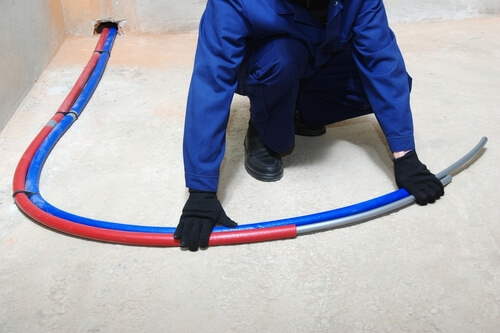
PEX pipe plumbing
Our team of experts can also install PEX (Polyethylene Cross Linked) pipes in your house, allowing for a flexible solution to plumbing in tight spaces, including galvanized piping.
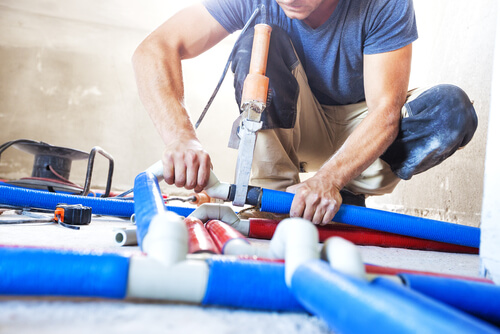
PVC piping
For a low-cost alternative with the same durability as copper, Blackmon Inc. offers PVC (Polyvinyl Chloride) pipes. They are lightweight and easy to install, and they can provide reliable service for many years.
At Blackmon Inc., we understand that repiping a home can be an expensive endeavor. That’s why we offer free estimates and consultations with our experienced local plumbers to help you make the best decision for your situation. We also provide flexible payment plans and financing options, so you don’t have to worry about breaking the bank.
What are the illnesses and diseases associated with old pipes?
When you have old, outdated pipes in your home, they can be prone to developing various illnesses and diseases.
Here are the five most common ones that you should be aware of:
If you suspect that your old water pipes may be causing any of these illnesses or diseases, it is important to get them checked out and potentially replaced with a new repipe. Replacing your pipes can help improve the overall health of your family and keep your home safe from any potential issues that could arise from old pipes.
Blackmon Inc., your leading Houston Repipe Plumbers
It has been in the plumbing industry for years. Our team of highly trained and experienced professionals are experts in house repiping and have serviced countless homes throughout Houston with successful results. We understand how important it is to have a reliable plumbing system and strive to provide our customers with the highest quality of service possible.
Our team can handle any repiping house job, from copper to PEX piping. We’re dedicated to getting the job done quickly and efficiently so that you can return to your normal life as soon as possible. Our commitment to excellent customer service also means that we will always provide a fair estimate before beginning any work so that you are never surprised by the final bill.
Here are all services we provide for residential and commercial customers:
These are just a few of the services we offer at Blackmon Inc. With our experienced team and top-of-the-line materials, you can trust that your plumbing will be in good hands with us. Contact us today for more information or to schedule a free consultation!
The Benefits of PEX piping
Steel pipes were once considered the gold standard for plumbing in homes, but times have changed, and PEX piping is now the preferred option. If you’re considering a house repipe, here are the benefits of PEX piping:
These are just a few benefits of using PEX for house repipe specialists. With its low cost, durability, and resistance to corrosion, it’s no wonder that more and more homeowners are opting for recipes using this modern material.
5 Tips for Choosing the Right Repiping Company
When you need to repipe your home, there are some important considerations to keep in mind. Here are five tips for choosing the right repiping company:

Look for experience and reputation
Choose a plumbing contractor with extensive experience in entire house repiping projects and a good reputation among clients. Ask past customers about their experiences with the contractor, and make sure the contractor is licensed, bonded, and insured.

Understand your goals
Before looking for plumbing companies, understand your needs and goals. Consider the type of pipes used in your homes, such as copper or PEX piping, and any specific plumbing issues that need to be addressed.

Get several estimates
Once you have identified a few potential contractors, get written estimates from each one to compare prices and services. Make sure all of the bids are for the same type of work, so you can accurately compare them.
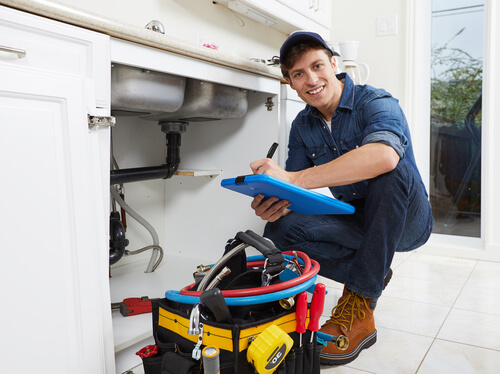
Ask questions
Don’t be afraid to ask questions about the repiping process, the materials used, and any warranties offered. A good plumbing contractor should be able to answer all of your questions and provide you with peace of mind.

Research reviews
Check online reviews for each contractor on websites such as Yelp or Angie’s List to get an unbiased opinion on their work. This will help you narrow down your choices and find a contractor that is right for you.
By following these tips, you can ensure that your repiping home project is done correctly and with minimal stress. With the right contractor, you can rest assured knowing that your plumbing system will be up to date and working properly for years to come.
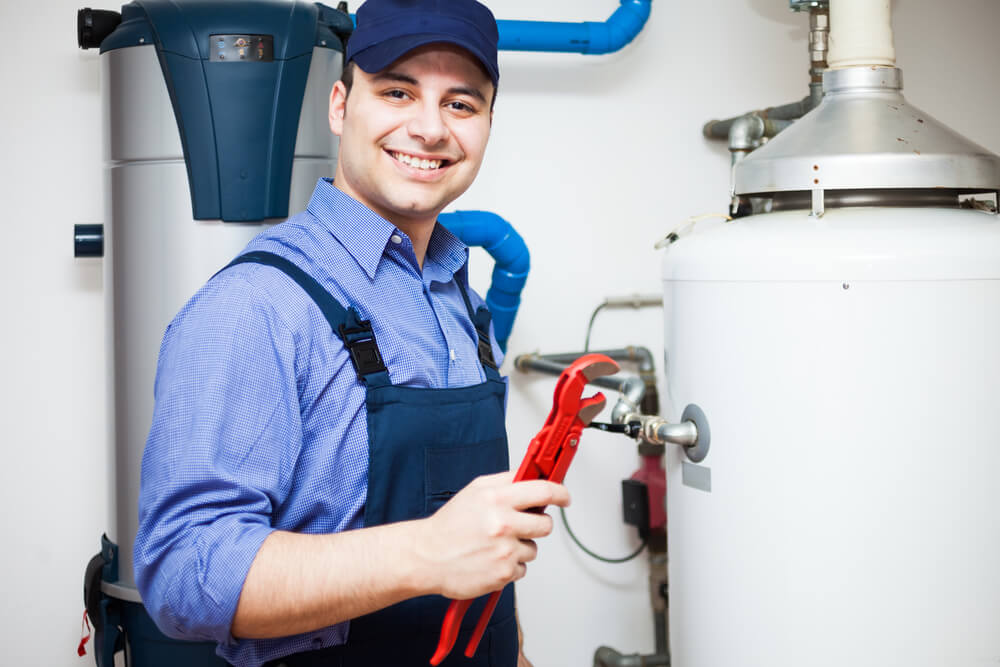
Final Thoughts
Blackmon Inc. is a great choice when it comes to repiping your home. Not only do they provide quality work and customer service, but they also offer competitive prices. With their years of experience, you can rest assured that the job will be done right the first time.
So if you’re looking for an experienced plumber who can get your house up-to-date with the latest pipes, then Blackmon Inc. is the perfect choice for you. They will ensure your home has a reliable and safe water supply for years! Thank you for considering Blackmon Inc. for all of your plumbing needs!
Frequently Asked Questions About House Repipe
What is the average cost of repiping a house?
The average house cost can vary greatly depending on the size of the home and the plumbing materials used. Generally, repiping a home’s plumbing system will range from $1500 to $8000.
Is it worth it to repipe a house?
It can be worth repiping your house, especially if you live in an older home with outdated plumbing. Repiping will help ensure that your plumbing system is functioning efficiently and safely, reducing the risk of water damage or leaks. Additionally, a new repiping job may increase the value of your home should you decide to sell it in the future.
How much does it cost to replumb a 2000 square foot house?
The cost to replumb a 2000 square foot house can range from $3000-$16000, depending on the type of plumbing materials used and the job’s complexity.
Can I repipe my house myself?
It is not recommended that you attempt to repipe your home yourself without proper training. Performing a repipe requires complicated work. And specialized tools and skills. It is better to hire a certified professional plumbing contractor with the experience needed to conduct the job correctly and safely.
